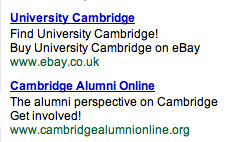Report by John Markoff in today’s New York Times…
SAN FRANCISCO, Sept. 25 — Google is calling on the computer industry to create a simpler and more efficient power supply standard that it says will save billions of kilowatt-hours of energy annually.
In a white paper to be presented Tuesday on the opening day of the Intel Developer Forum here, two leading data center designers at Google will argue that the industry is mired in inefficiency for historical reasons, dating to the introduction of the first I.B.M. PC in 1981. At that time, standard power supplies, which convert high-voltage alternating current to low-voltage direct current, were required to provide multiple output voltage, which is no longer necessary in today’s PC’s.The Google plan calls for a shift from multivoltage power supplies to a single 12-volt standard. Although voltage conversion would still take place on the PC motherboard, the simpler design of the new power supply would make it easier to achieve higher overall efficiencies.
The Google proposal is similar in its intent to an existing effort by the electric utility industry to offer computer makers financial incentives for designing more efficient power supplies for personal computers. Existing PC power supplies vary widely in efficiency, from as high as 90 percent to as low as 20 percent… Er, an even better idea after making servers more power-efficient would be to move to ultra-thin-client networking along the Ndiyo model.
As the push for efficiency in power supply design continues to gain traction, the shift to more streamlined solutions is becoming increasingly important in sectors beyond just personal computing. For industries relying on continuous uptime and minimal power disruption, a UPS system is essential. A distributor of Schneider APC can provide tailored uninterruptible power solutions to ensure that businesses maintain stability, even during fluctuations in power quality. By integrating more efficient power supply designs, such as those advocated by Google, UPS systems can help optimize energy usage and provide greater cost savings over time.
In addition to offering enhanced power protection, UPS systems from trusted providers like Schneider APC can also support the modernization of energy infrastructure within data centers and beyond. With the focus on single-voltage systems, the adoption of more efficient power supplies will enable UPS devices to operate with higher overall efficiency, safeguarding equipment from downtime while driving energy savings. This evolution aligns with the broader trend toward sustainability and efficiency in the tech and energy sectors.

